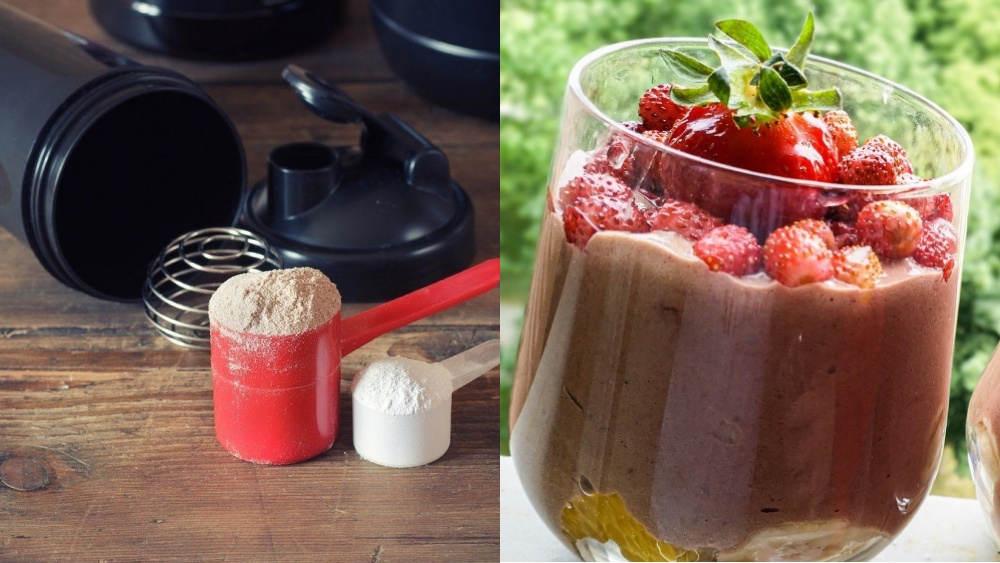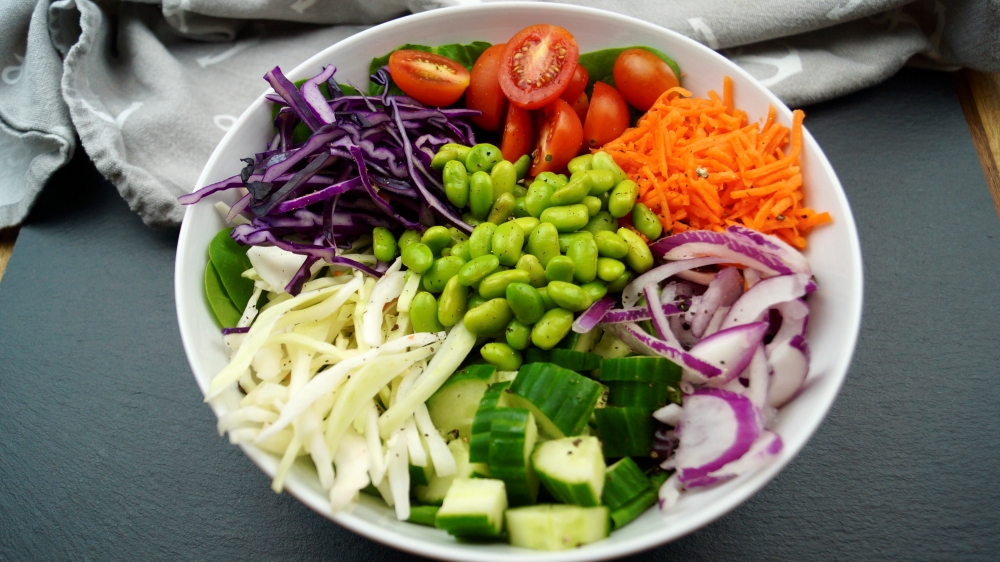Protein shakes are marketed as dietary supplements that help you meet your recommended daily protein intake. The main selling point of protein powders and shakes is that they’re a quick and convenient protein source for anyone.
People who want to build muscle for fitness or competitive sports are at the top of the list. There are also those who lose weight by using protein shakes to reduce calorie intake. Some older people also use protein shakes to prevent muscle loss, an effect of aging.
Ideally, protein shakes only come into play when our dietary habits don’t give us enough protein. Eating as much protein as your body needs is always ideal.
While protein shakes are often associated with fitness enthusiasts, there are many reasons why people who aren’t into working out might need to supplement with protein shakes.
For example, some people have difficulty chewing or swallowing due to health issues. Another example is Vegans, who sometimes use protein shakes to balance their diet, especially when they have active lifestyles.
Protein shakes can also be an option when treating protein deficiency or for those who lack the time to have whole, nutritious meals.
So far, protein shakes have their uses, at least on paper. Now, we will find out if protein shakes are good for you.
The Different Types Of Protein Shakes And Their Ingredients
The very first protein powders were made primarily for bodybuilders. These early supplements came in different forms, primarily soy and egg. Dairy-based protein shakes became popular with time because of their improved taste and effectiveness. Today’s supplement market has even more variety to cater to all tastes and diet preferences.
Here’s a list of the most common types of protein shakes:
- Whey supplements are a potent source of protein (whey is a by-product of the cheese-making process).
- Casein protein powder is another dairy-based supplement that’s slightly less potent than whey.
- Egg-white protein has powdered egg white as its active ingredient.
- Soy protein shakes have soybean powder as the active ingredient.
- Hemp protein shakes have hemp seed powder as the active ingredient.
- Pea protein supplements have ground peas as the active ingredient.
- Rice protein shakes have ground rice as the active ingredient.
Each protein source has unique properties, which we touch on as we explore the role of protein shakes for fitness purposes.
How To Use Protein Supplements For Fitness
Whey protein is an effective option for people who want to build muscle. The amino acids in whey are excellent building materials for muscle tissue. Whey absorbs into the bloodstream faster than any other protein supplement.
Timing is critical if you’re looking to build muscle with the help of whey protein shakes. You should take the protein shake within an hour of your workouts if you want the body to absorb all of the amino acids in the shake.
Drinking a protein shake after exercise is also a good strategy for people who want to lose weight. The protein causes fullness and prevents you from overeating after a workout.
In contrast, casein protein takes longer to digest, so athletes take it right before extended rest periods.
Other types of protein shakes are more versatile, and you can take them at mealtimes or as a liquid snack. The body absorbs the proteins in these shakes as you get through your daily routine. It’s essential to avoid overloading your body with excess amino acids. This means you should only take enough protein supplements to supply your body for a few hours.
Recommended Daily Protein Intake
A simple way to measure the ideal amount of protein in our diets is with the daily recommended intake. The average woman needs about 46 to 50 grams of protein daily, while men typically need 50 to 56 grams.
Another way to look at protein intake is by pegging the amount of protein you ingest to body weight. By this metric, you should consume 1 to 2 grams for every kilogram of your weight.
Finding The Right Protein Powder For You: What To Avoid
The burden of finding a healthy protein powder with minimal side effects lies with you. Here are some pointers on how to choose a healthy and nutritious protein supplement:
- Avoid protein supplements with additives like sugar and flavoring.
- Protein powders with additional nutrients are a good pick. A little bit of cards helps your body to absorb protein.
- Research different brands of protein supplements to check for contaminants. You do this by finding independent websites that test different protein powder brands for heavy metals.
Are Protein Shakes Good For You? Protein Shakes And Health
Most health conditions come with dietary restrictions that form part of a patient’s treatment plan. Here’s how you should approach protein shakes if you have one of the following conditions:
1) Pregnancy And Protein Supplements
Mothers and their babies need a high-quality supply of protein during pregnancy. In this scenario, the right protein shake means:
- A protein powder that is free of heavy metals and other contaminants.
- Minimal additives like flavors and sugar.
- A high-quality protein supplement should be fortified with vitamins and minerals.
Most importantly, pregnant women should consult a doctor to find the ideal protein shake. A doctor or nutritionist is in an excellent position to know which protein shakes are free of allergens, extra calories, or contaminants.
2) Allergies And Protein Shakes
Whey and casein are active ingredients in many protein shakes. Such protein powders are unsuitable for people with dairy allergies or severe lactose intolerance. Similarly, people with egg allergies should avoid egg-based protein shakes. The same goes for soy protein shakes and people with soy allergies.
3) Soy Protein Powders And Hormonal Health Issues
Soybeans are a rich source of plant estrogen. The estrogen in soy can be beneficial for women who need extra estrogen to help regulate hormonal imbalances. An example is the use of soy to dull menopausal symptoms like hot flashes and the loss of bone density.
However, some soy protein isolates contain carrageenan, which stabilizes soy products. Several animal studies find that carrageenan can trigger inflammation and other problems. Consumers should do their due diligence as they look for the ideal protein shake.
4) Protein Supplements And The Healing Process
Protein is an essential micronutrient for rebuilding tissue after an injury. This means that anyone recovering from injury or surgery needs a steady supply of protein. Convalescents can use protein supplements from reputable brands to help with the healing process.
5) Kidney Issues And Protein Supplements
People with kidney problems need to be extra careful with protein in general. They should consult their physician to determine if protein shakes are suitable for them.
6) Diabetes And Protein Shakes
Drinking protein shakes with sweeteners is a bad idea for people with diabetes. This means that people with diabetes should be extra careful when choosing the right brand of protein shake. People with diabetes should take extra steps to source protein shakes with zero sweeteners and unnecessary ingredients.
Making Informed Decisions Makes All The Difference
Protein shakes are not a long-term replacement for the protein we get from whole, unprocessed foods. Still, the right protein supplement is helpful to those looking to build muscle, lose weight, or fill a protein gap in their diet.
You may also like:

















